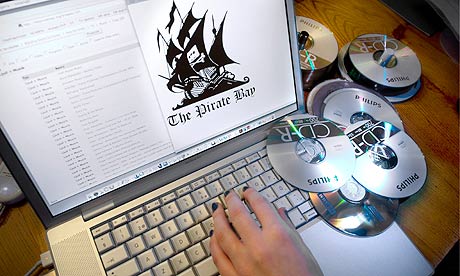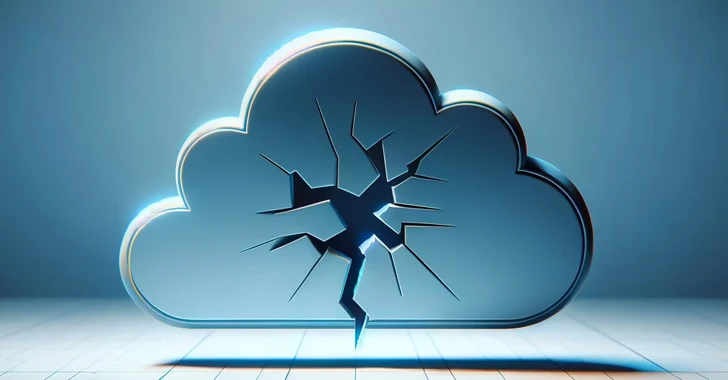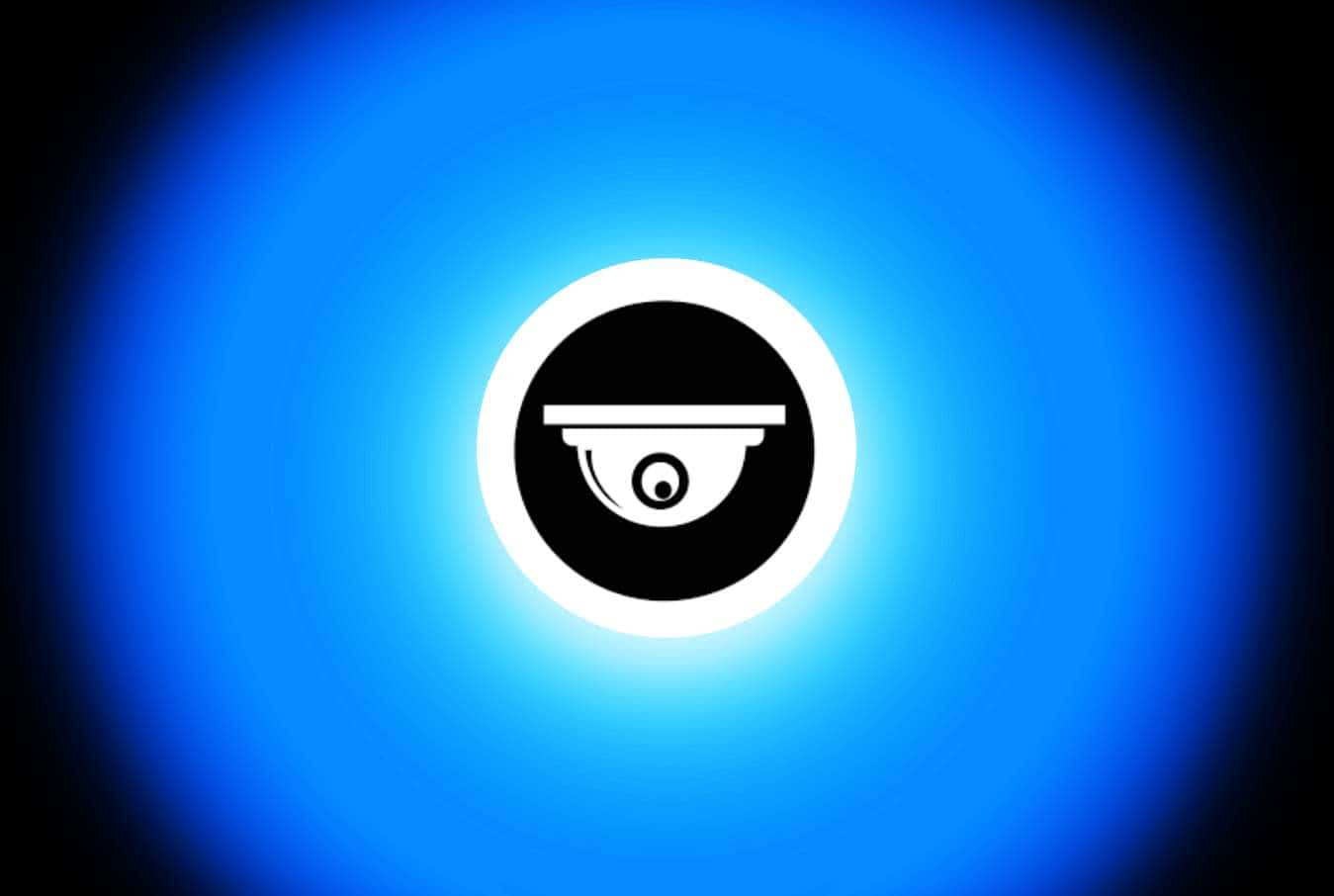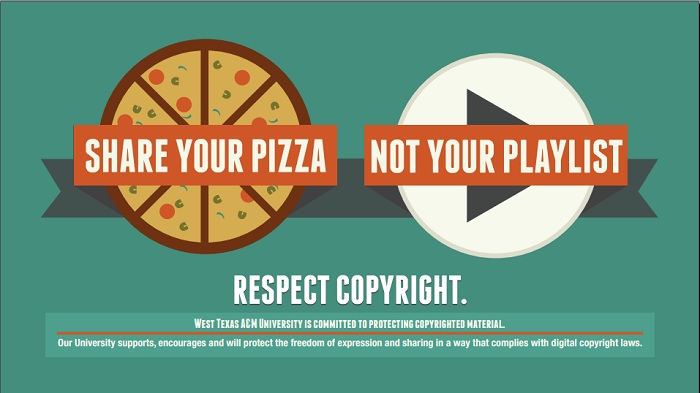
Short Bytes: A report published by Mathew Sag claims that the number of people sued for illegal file sharing in the US has decreased by 84% since the year 2010. The report includes statistics from the year 1994 till 2015, featuring numerical data for trademark, patent and copyright lawsuits filed in the 20-year time span in various US District Courts. Most of the cases filed are John Doe lawsuits which are considered as a monetization strategy implemented by the Plaintiffs.
An updated version of the report ‘IP Litigation in United States District Courts: 1994 to 2014‘ by Mathew Sag, Professor of Law at Loyola University Chicago School, concludes that there has been 84% slump in the number of people being sued for illegal file sharing in the United States, which is usually done by P2P file sharing.
Increase in patent and copyright litigation, relative decline in federal trademark litigation
The report includes statistics from the year 1994 till 2015, featuring numerical data for trademark, patent and copyright lawsuits filed in the 20-year time span in various US District Courts – “The two most important trends in IP litigation over the last five years have been the extraordinary increase in patent and copyright litigation and the corresponding relative decline of federal trademark litigation. These trends continued in 2015.”
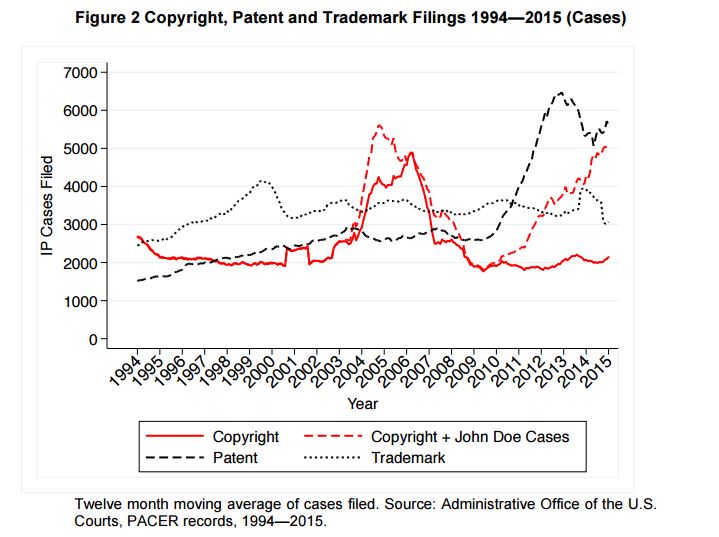
The easily available pirated content does unbolt the doors for the copyright holders to come up with a business model in order to get some cash out of the pirates’ pockets. They’re doing well with all those John Doe lawsuits which account to 58% of all the copyright lawsuits filed in 2015.

Another side of the coin is the shrinking number of John Doe defendants which were 43,124 ISP account holders in 2010 for 77 cases filed while the numbers were only 6700 for 2015 where the number of cases filed was 2390. A significant dwindle which is hard to gulp despite umpteen efforts made to catch the mice. Impressively, these mice earn up to $70 million/year.
Undoubtedly, the Bittorrent monetization strategy by the Plaintiffs has got a hard blow on the face, as for not being able to comprehend more John Does in their neoteric lawsuit filings. Maybe the legal system doesn’t consider suing thousands of ISP account holders, a wise act.
Copyright lawsuits — What does the changing trend indicate?
Moreover, only a limited number of copyright holders have been undeviating when it comes to filing John Doe lawsuits, Malibu Media being the topper for the year 2015 with 39% of all the copyright cases filed in the United States. However, they showed a slightly better performance in 2014 with 41% of the total copyright lawsuits. But the contraction in their share is an out-turn of other players becoming more serious.
Targeting an enormous number of John Doe defendants under one lawsuit is an economic path chosen by the plaintiffs – “The filing fee for opening civil action in US district courts is now $400, so that means that plaintiffs associated with Mr. Lipscomb have paid at least $936,800 in filing fees over the last year” – in fact, the copyright holders have discerned the ‘beyond the compass’ reach of online piracy. Maybe, they don’t feel adept enough to immobilize it.
Although, they did ask Google to remove 1500 pirate links/minute for that purpose. Their newborn game plan to let piracy safeguard its existence and use it as a wellspring of income marks a new chapter. But, we can’t disregard that only a few people will have to go under the crocodile jaws of the copyright holders, rest of the pirate world will continue to thrive.
Write your views in the comments section below.
Also read: Movie Studios Repeatedly Report Their Own 127.0.0.1 Localhost for Piracy

